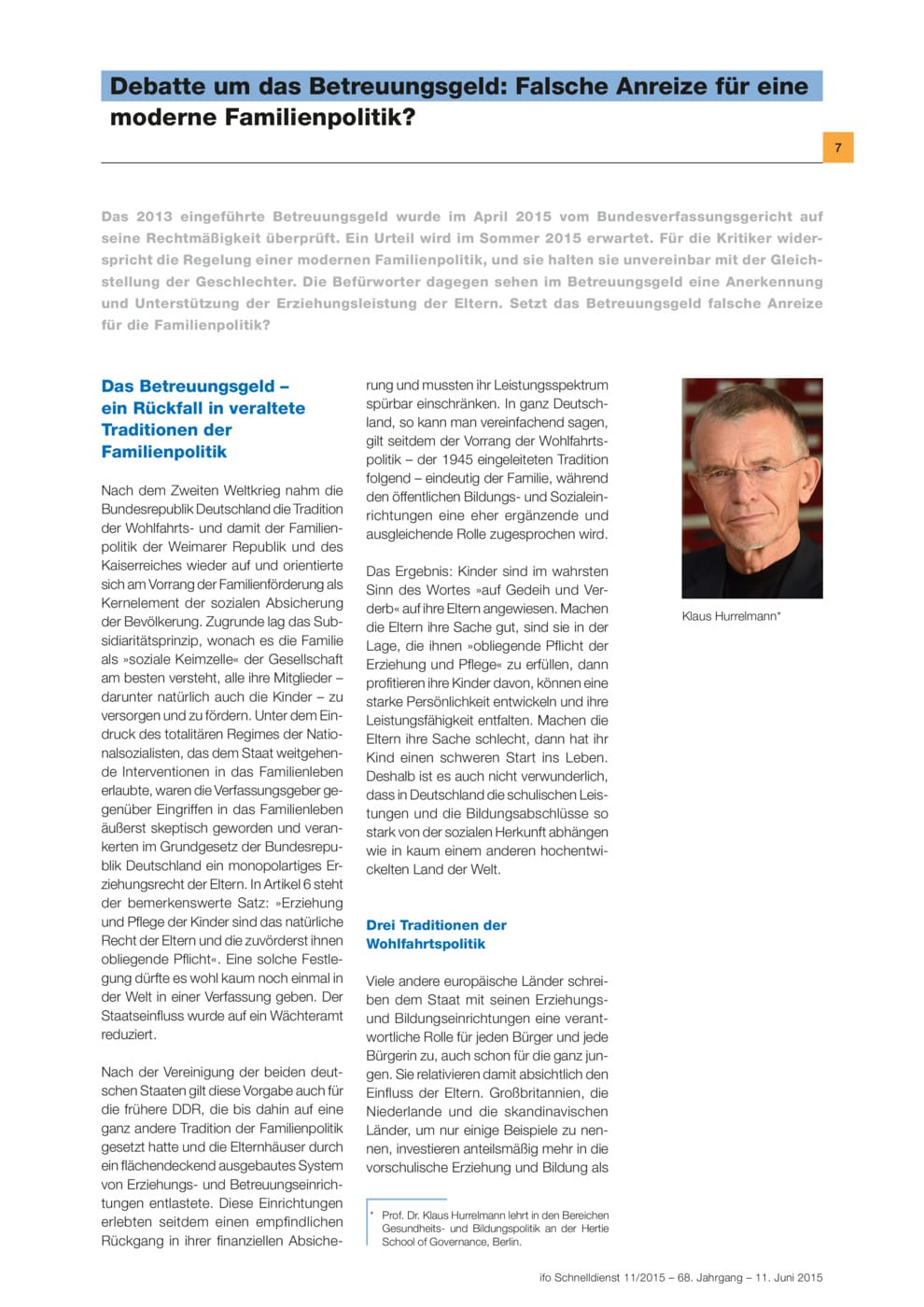The Debate over Childcare Benefits: Are They False Incentives for Modern Family Policy?
ifo Institut, München, 2015
ifo Schnelldienst, 2015, 68, Nr. 11, 07-19

The childcare benefits introduced in 2013 were reviewed in terms of their legality by the Constitutional Court in April 2015. The Court is expected to give a verdict in summer 2015. According to Klaus Hurrelmann, Hertie School of Governance, Berlin, childcare benefits mark a relapse of family policy into an outdated paradigm. Their introduction is the symptom of an indecisive, contradictory state family and education policy that is unsettling families and is reinforcing the family-fixated nature of education and training that urgently needs to be loosened up. Childcare benefit is also a questionable proposal for Stefan Sell, Hochschule Koblenz. It necessarily beats a path towards the monetarisation of family benefits that necessarily ends in a form of “parental wage”. At the moment significant windfall effects can be expected. According to Miriam Beblo, University of Hamburg, childcare benefits are neither modern nor sustainable. In the long-term this family policy measure leads to greater income inequality between parents, constrains the gainful employment of mothers and promotes their decoupling from the labour market, especially for lower earners. The losers of this benefit are poorly-qualified and low-earning women. Notburga Ott, Ruhr-University of Bochum, sees the monetary funding of the education services provided by parents, which has met with great approval in society, as well anchored in the system of child and parental allowances. By contrast, the coupling of childcare benefits with the non-usage of publicly-funded childcare will have negative effects on the number of women in work and the education opportunities for children.